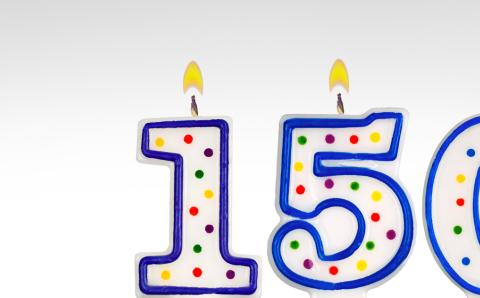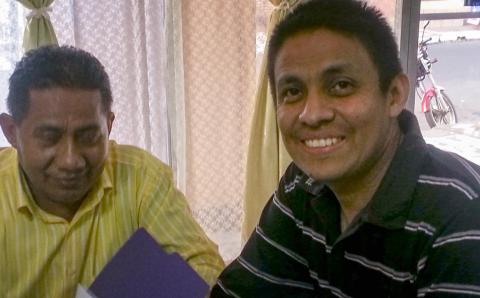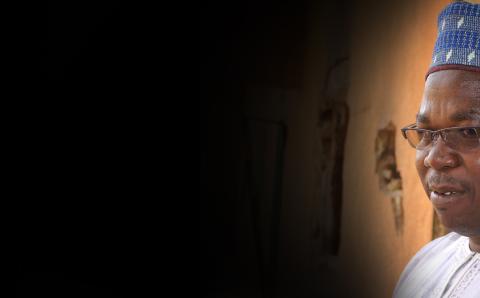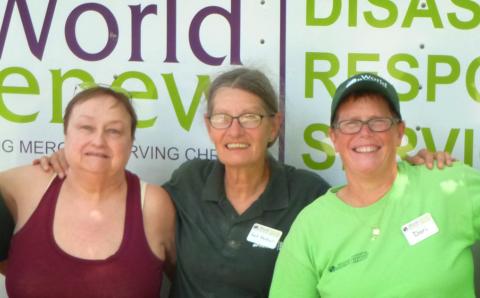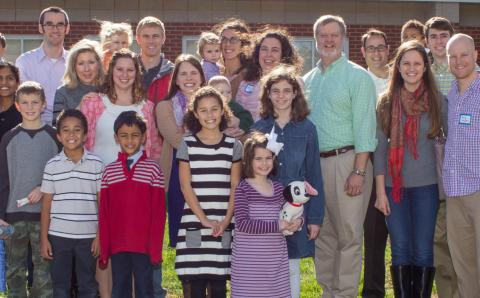A cursory glance through the Agenda for Synod 2016 makes it obvious that the main item on this year’s agenda will be homosexuality and same-sex marriage. Synod is the annual leadership meeting of the Christian Reformed Church.
The Agenda includes the final report (including a minority report) from the committee appointed by Synod 2013 to provide pastoral advice in light of the legalization of same-sex marriage. The Agenda also includes 26 overtures (requests) about the issue. Most want synod to reject the report outright. Some want the recommendations of the minority report adopted. Others want the Church Order (the rules that bind Christian Reformed churches) changed to note in a supplement to Article 69c that marriage is only between a man and a woman, so clergy officiating at a same-sex marriage will be in violation of the Church Order. (See also Pastoral Guidance for Churches Regarding Same-Sex Marriage.)
Another report likely to generate discussion is from the committee that studied the Doctrine of Discovery. (See also Synodical Committee Rejects Doctrine of Discovery, Criticizes Ministry to Navajo). That report calls for the CRC to repent of and lament its trespasses against the Navajo and Zuni peoples. However, the congregations that grew from the ministry to the Zuni and Navajo communities have voiced their opposition to that report. (See also Rehoboth, Zuni Churches Criticize Doctrine of Discovery Synodical Report.)
A third study committee report deals religious persecution and liberty. That report calls the church to refocus on the problem of religious persecution, citing insufficient action from various CRC ministries and committees. The authors of the report want each congregation to appoint a prayer coordinator to keep up on religious persecution and liberty issues and to foster regular prayer for those suffering from persecution. They also want the CRC’s Office of Social Justice to ensure collection and distribution of up-to-date information about religious persecution to the congregations. (See also Synodical Report on Religious Persecution Calls for Prayer and Mobilization.)
Of course, annual synods deal with many other items as well. This year, two new appointees to the faculty of Calvin Theological Seminary will be interviewed. Synod will also interview Shiao Chong, the nominee to be the new editor for The Banner. (See also “Banner Editor Nominee Seeks to Be a Shalom-Maker.”)
Along with the Board of Trustee’s request for a 2 percent increase in the ministry shares amount churches are asked to pay in support of shared ministries, there may also be discussion of how that system is working. One overture is asking synod to completely overhaul how funds are designated and drastically reducing the amount of ministry shares being requested.
Diversity and Change
While the church continues to strive for ethnic diversity in its representation at synod, on boards, and in denominational staffing, the Agenda reveals that the CRC is increasingly diverse in its contexts for ministry, its needs, and its practices.
One of the most visible changes will be at synod itself, where, for the first time, deacons will be delegates. Instead of two pastors and two elders, each classis (regional group of churches) will be represented by one pastor, one elder, one deacon, and one other officebearer. This year’s synod will see the return of a panel of female advisers, in response to a request by last year’s synod because too few women were delegated to synod. In fact, this year’s delegation shows a marked increase in female delegates, especially among the newly seated deacons.
For much of the denomination’s history, congregations all used the same forms for baptisms, professions of faith, and communion. This year several new forms come to synod for approval to accommodate the wide variety of practice in local churches.
Pastor-Church Relations is seeking approval to change its name to Pastor-Church Resources. The office is bringing a summary of its Better Together report, which addresses the increasing incidence of churches and pastors separating. Synod will hear about the need to assess pastors for better ministry fit. One size does not fit all.
The Agenda includes recommendations about continuing education for pastors and how to provide it in diverse ways for pastors serving in very diverse settings. The Agenda notes that 40 percent of candidates entering CRC ministry are attending seminaries other than Calvin Theological Seminary, the seminary owned by the CRC. And fewer than half of the students at Calvin Seminary are from the CRC.
The role of commissioned pastors and Church Order Article 23 that governs the role is also up for discussion. The marked increase in the number of commissioned pastors and the diverse roles they are filling also speaks to the change happening in CRC leadership.
Whether it is Pastor-Church Relations or the new Faith Formation Ministry or Christian Reformed Home Missions, there are regional experiments happening to help churches connect in their local context.
Synod will hear updates on major initiatives approved by Synod 2015: The unification of Christian Reformed World Missions and Christian Reformed Home Missions; the changing of the Board of Trustees into a much larger Council of Delegates; and a plan to review the format of synod itself.
Delegates will convene for Synod 2016 at Calvin College in Grand Rapids, Mich., from June 10-17. The Banner will post articles on its website throughout the week and keep readers updated via Twitter (hashtag #crcsynod) and Facebook. There will also be a live webcast, liveblogging, and press releases from CRC Communications. The July/August 2016 print issue of The Banner will include a round-up of news from Synod 2016.
About the Author
Gayla Postma retired as news editor for The Banner in 2020.





